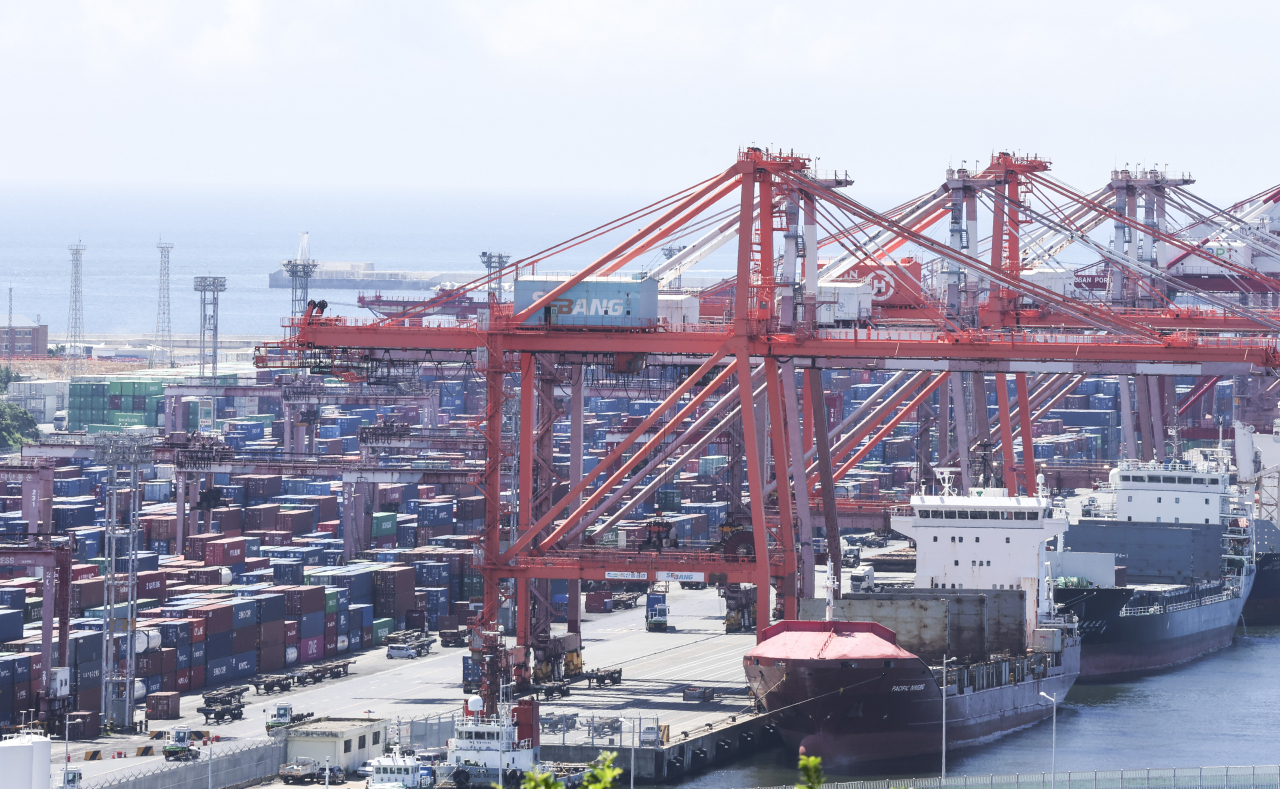Export slump to recover in first half of 2024: KITA
By Song Seung-hyunPublished : Aug. 28, 2023 - 16:01

Korea's export downturn will see a recovery in the first half of next year, with the semiconductor market expected to rebound in the fourth quarter of this year, the Korea International Trade Association forecast on Monday.
The prediction was based on findings that the primary factor behind Korea's export slump is the slowdown in the global information and communications technology market, according to KITA.
“Upon closer examination, I realized that the decrease in the global demand for IT devices such as PCs and mobile phones after COVID-19 is crucial for predicting future semiconductor demand and also Korea's export performance,” Jeong Marn-ki, vice chairperson of KITA said at a press conference at the KITA headquarters in southern Seoul’s Samseong-dong on Monday.
Jeong forecast that semiconductor exports would recover in the fourth quarter, with the entire ICT market rebounding in the first half of next year based on industry data.
According to the Korea Semiconductor Industry Association, South Korea's semiconductor exports are expected to increase by 3 percent on-year to $9.5 billion in October. Memory semiconductors, in particular, are projected to increase by 26.9 percent to $5.7 billion in October.
KITA anticipates that this chip rebound will be driven by the increasing global demand for IT devices in the first half of next year.
IT device demand for this year is forecast to be around $700 billion, showing an 8.6 percent on-year decrease, but it is expected to recover next year to $748.2 billion, marking a 6.9 percent increase, KITA said.
This analysis differs from the previous analysis, which suggested that intermediate goods have the biggest impact on Korean exports, Jeong said.
As of Aug. 20, South Korea's trade balance showed a deficit of $28.4 billion. Exports decreased by 13.2 percent on-year to $385.3 billion, while imports fell by 12 percent from a year ago to $413.7 billion.
Jeong attributed this export decline to the global downturn in the ICT product market, as the decrease in Korean ICT products imported by the US, EU and China outpaced the falls in non-ICT imports by those countries.
Imports from the US in ICT decreased by 44.8 percent, compared to a 13.3 percent increase in non-ICT products.
The EU saw a 17.5 percent reduction in ICT imports and a 16.7 percent increase in non-ICT imports. China reported a 29.7 percent reduction in ICT imports and an 18.2 percent reduction in non-ICT imports.
South Korea's semiconductor exports also suffered during this period.
From January to July of this year, Korea's semiconductor exports to China totaled $19.7 billion, marking a 40.4 percent on-year decrease.
This accounted for 93 percent of the overall decline in Korea's exports to China, underscoring the significant impact of the semiconductor downturn on the overall export drop.
Meanwhile, Jeong also pointed out that the expected impact of the Chinese real estate market on exports is anticipated to be minimal.
Regarding next year's Chinese economic growth rate, which is forecast to be slightly lower, at 4.6 percent compared to this year's 5.1 percent, KITA believes that this decrease will not have a substantial impact on Korean exports.
"It's anticipated that the influence of China's domestic market slowdown on exports is temporary and not substantial,” Jeong said.



















![[Today’s K-pop] Treasure to publish magazine for debut anniversary](http://res.heraldm.com/phpwas/restmb_idxmake.php?idx=642&simg=/content/image/2024/07/26/20240726050551_0.jpg&u=)